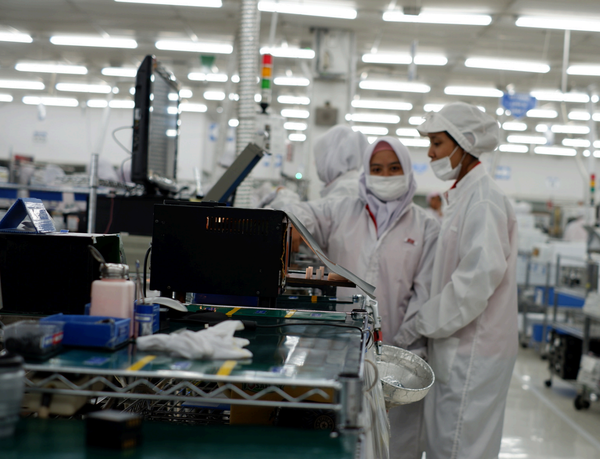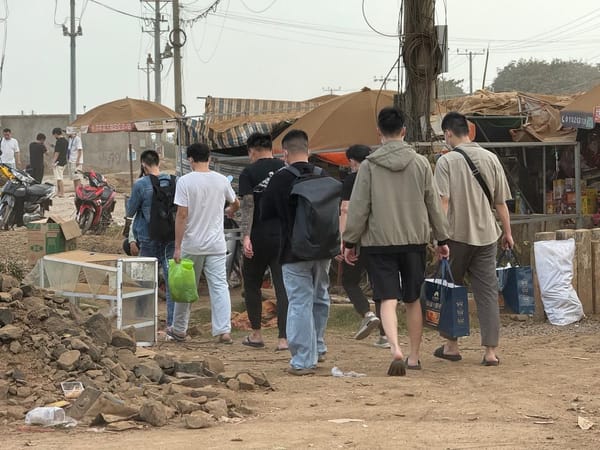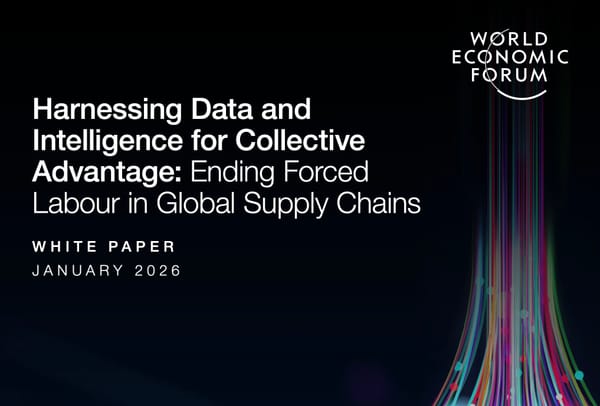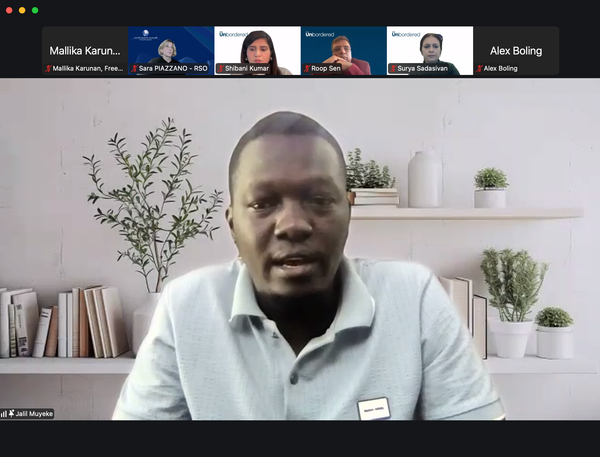Making modern slavery a priority in the UK would support high-profile policy goals
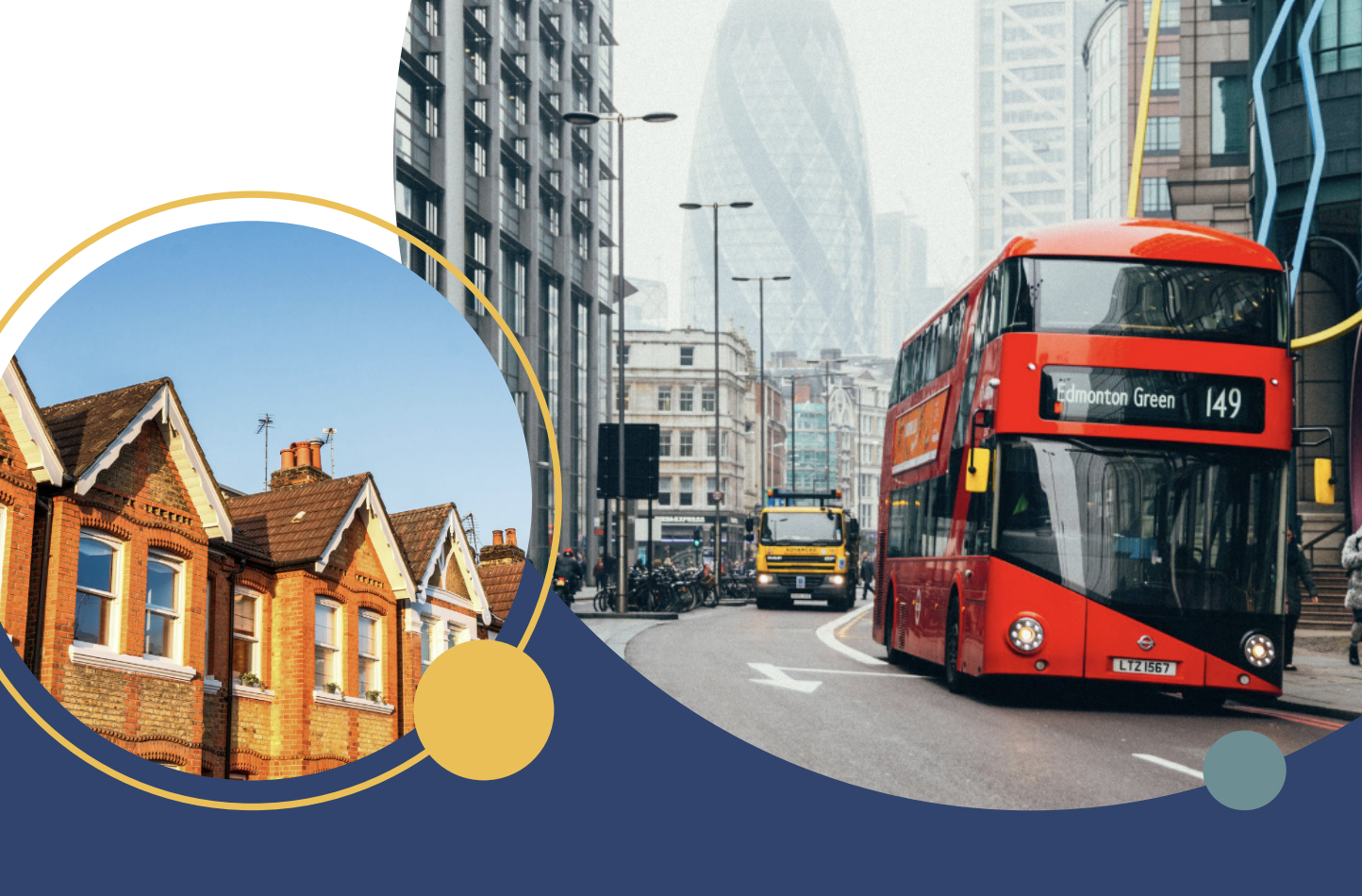
A disjointed approach to tackling exploitation in the UK weakens prevention efforts, the U.S. sanctions a Cambodian businessman for human rights abuses in online scam centers, and The Freedom Story is fundraising for emergency relief in flood-hit northern Thailand.
UK policymakers could address the complexities of modern slavery while also tackling their stated priority issues, by recognizing the ways in which exploitation intersects with healthcare, immigration, and crime, according to a new report by Hestia. The report highlights that, while these high-priority areas are intricately linked with modern slavery, the country’s Members of Parliament (MPs) currently miss the opportunity to address the issue within the broader context of their existing efforts, thus perpetuating a fragmented response.
Only two per cent of the MPs surveyed ranked modern slavery as their number-one concern, while 50 per cent selected health and social care as their top priority, 22 per cent chose the UK immigration and asylum system, and 20 per cent the crime, policing and justice system.
There are multiple consequences of this failure to align modern slavery efforts with related priority issues. For instance, funding, personnel, and services are directed towards isolated issues rather than a cohesive strategy, reducing the overall impact of interventions. Victims of modern slavery may not receive adequate support due to the lack of integration between trafficking responses and services related to health, social care, and crime, leading to identification and protection gaps. A lack of coordinated strategies means perpetrators and systems of exploitation remain unchallenged, while victims are trapped in exploitative conditions. And the failure to recognize modern slavery’s links to broader issues leads to underestimation of the scope and scale of the problem, limiting data collection, evidence-based policy development, and informed decision-making.
Another key insight from the findings of the report is that, when modern slavery is not framed as part of larger policy priorities, it remains marginalized in political discourse and public awareness. This limits the pressure on policymakers to take meaningful action, slowing progress in combating exploitation. Although modern slavery offences occur across every region of the UK, only 25 per cent of the British public believe it is an issue in their local area (rising to 32 per cent in London), while just 10 per cent agree that British citizens are likely victims of modern slavery when, in fact, they are the second largest group by nationality among adult victims. Despite this, seven in ten think more attention should be given to the issue, with 81 per cent saying the UK Government should do more to deter perpetrators and 78 per cent agreeing it should do more to support victims.
In recent years, the global anti-trafficking sector has increasingly recognized the importance of addressing human trafficking and modern slavery as issues interconnected with broader social, healthcare, and immigration challenges. However, there is evidence showing that interagency collaboration is still limited and responses often treat trafficking in isolation. Results from a study by the Urban Institute in the U.S. indicate that barriers include differences in agency priorities and a lack of shared understanding about the complex nature of trafficking and the coordinated efforts required across sectors such as law enforcement, social care, and healthcare.
The findings of the report underscore the urgent need for a strengthened national UK response as well as the British public’s support for efforts to deter traffickers and support victims of modern slavery. With only a minority of MPs surveyed believing that legislation passed by the previous Government will significantly reduce modern slavery in the UK (31 per cent) or deter traffickers (41 per cent), current lawmakers must now make modern slavery a priority, ensuring it receives the necessary attention and resources at the national level, and advocating for effective legislation that addresses the issue comprehensively. Encouraging bipartisan support among MPs to recognize exploitation as a pressing domestic issue rather than a foreign policy concern could also close the gap between a narrow focus on individual policy areas and the complex realities of exploitation.
Hestia calls on policymakers, law enforcement, and the public to work together to address this growing issue through the following recommendations: leveraging the Border Security, Asylum, and Immigration Bill to address modern slavery and support victim-survivors, in order to align with public sentiment for stronger support for those exploited in the UK; implementing a comprehensive review of the system for providing long-term support for victims, with the aim of helping them move towards recovery and enabling them to support prosecutions for perpetrators; and committing to increased training to enhance policymakers’ understanding of the changing faces of modern slavery while prioritizing actions to raise public awareness on identifying the signs of exploitation.
Here’s a round-up of other noteworthy news and initiatives:
The U.S. Department of the Treasury’s Office of Foreign Assets Control (OFAC) has sanctioned Cambodian businessman Ly Yong Phat, his conglomerate L.Y.P. Group Co. Ltd, and O‐Smach Resort for their role in serious human rights abuses related to the treatment of trafficked workers subjected to forced labour in online scam centers. Cambodia’s foreign ministry on Friday expressed deep regret over the U.S. decision, calling it politically motivated. According to this opinion piece, the landmark policy move both symbolizes the insufficiencies of the current system to hold the powerful accountable, while highlighting the potential of sustained grassroots advocacy as a vital but incomplete step toward justice in Cambodia.
Participants from across the Council of Europe and OSCE regions last week discussed ways in which to increase political will and bolster effective anti-trafficking responses in relation to other national priorities and challenges, at the annual meeting of the National Anti-trafficking Co-ordinators and Rapporteurs. They also discussed institutional and legislative initiatives, policies, capacity-building measures, and other anti-trafficking initiatives that have the potential for high impact.
A paper from OSCE explores the increased risks of trafficking in human beings faced by persons belonging to minorities, including national minorities. The report also highlights the impact of racial or ethnic discrimination on the response to human trafficking itself, which leads to barriers to victim services and access to justice.
And this discussion paper from ILO explores some of the key investment requirements needed to work towards ending forced labour, and the economic returns to this investment for society. The paper fits within a broader program of ILO research on the economics of forced labour designed to improve understanding of the economic underpinnings of the phenomenon and help inform action against it.
Anti-Slavery International, the International Institute for Environment and Development (IIED), and the Ovibashi Karmi Unnayan Program (OKUP) will hold the virtual launch of the Climate Change & Modern Slavery Hub on 8 October. All are welcome to attend.
The third annual Tech Against Trafficking Summit, hosted by Business for Social Responsibility, takes place in London on 13-14 November. The event will bring together a diverse set of stakeholders to explore issues at the nexus of human trafficking and technology, such as building an effective supply chain data ecosystem, prevention of tech-facilitated trafficking on digital platforms and payment systems, and the impact of AI on anti-trafficking efforts.
Registration is open for HEAL Trafficking's Train the Trainer Academy, taking place virtually on 24-25 October. The event aims to equip public health and healthcare educators with the knowledge and teaching skills needed to train health professionals in their communities to respond to human trafficking. Subjects covered will include a public health approach to human trafficking, trauma-informed care, and human trafficking protocols for institutions.
The Freedom Story is fundraising to provide critical emergency relief for people in its programs who have been affected by severe flooding in northern Thailand. Families already facing significant challenges now need urgent shelter, food and supplies. The organization notes that any level of support “can make a life-changing difference in keeping these children safe and ensuring they have the resources to rebuild their lives and remain protected from traffickers during this critical time”.

